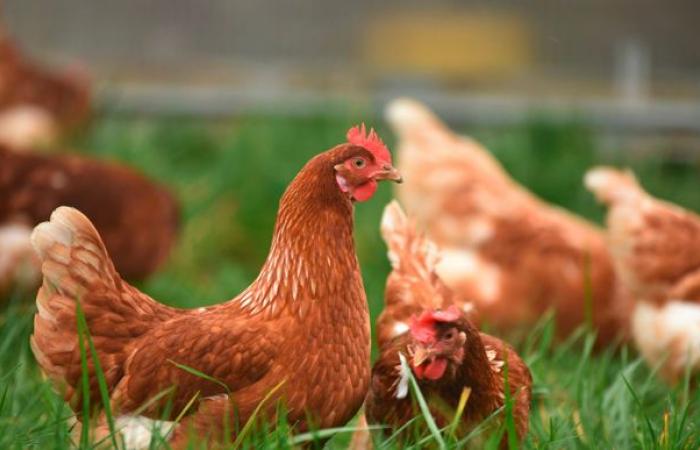In a decision rendered on April 30, 2025, the Council of State validated the ministerial decree of February 27, 2023 relating to the fight against infections in Salmonella-bacteria responsible for food infections in humans-in the breeding of laying and reproductive hens. The rural coordination and the association of egg producers in Haute-Loire had seized the high administrative jurisdiction to request the cancellation of this decree, believing that it imposed disproportionate constraints, especially for small farms.
Measures deemed proportionate to health risk
The Council of State has dismissed all the means raised by the applicants. He notably judged that the application of the decree to small farms was justified by “the objective of limiting the risks of contamination of consumers who buy their eggs on the markets or from local merchants supplied directly from producers”.
The judges also validated the threshold of 250 heads fixed to submit the herds to the regular detection of salmonella, believing that it “is fixed in consideration of objective and not arbitrarily” data “. The fact that other Member States of the European Union have chosen a higher threshold is not sufficient, according to the Council of State, to question the proportionality of this measure.
The sensitive question of confirmation tests
One point of litigation concerned the possibility of carrying out confirmation analyzes after a first positive test. The applicants feared that the decree would remove this possibility, which would have led to potentially unjustified systematic slaughter. The Council of State specifies, however, that the decree “maintained the possibility of carrying out such analyzes in the event of serious doubt concerning the contamination of samples”, both for laying hens and for reproductive hens. This analysis is based in particular on a judgment of the Court of Justice of the European Union (CJEU) of October 19, 2023, which specified the conditions under which the authorities can doubt positive results and carry out confirmation tests.
The applicant organizations also asked that the Council of State questions the CJEU on the proportionality of the European regulation relating to the control of salmonella. They wanted to know if this text, if it were to be interpreted as systematically prohibiting confirmation tests before slaughter for reproductive hens and future layers, would be compatible with the corporate freedom guaranteed by the Charter of Fundamental Rights of the European Union, and the obligation to take into account the animal well-being inscribed in the Treatise on the functioning of the European Union. The Council of State dismissed this request, believing that it was “inoperative” since the French decree maintains the possibility of confirmation tests in certain circumstances, thus making it unnecessary to question the Court of Justice on this point.
Restrictions on living vaccines
The rural coordination and the association of egg producers in Haute-Loire also disputed the restrictions imposed on the use of living vaccines against salmonella. The ministerial decree indeed authorizes the use of all types of vaccines with a marketing authorization, but it establishes a distinction between non -living vaccines and living vaccines: the former can be used in all farms, while the latter are subject to strict conditions. Only farms satisfying with “a high level of biosecurity” can use living vaccines, due to the “risk of excretion of salmonella following vaccination”.
The applicants believed that vaccination should have lightened other constraints, including the frequency of compulsory screenings. On this point, the Council of State is based on two scientific opinions (here and there) published by the National Food Safety Agency (ANSES) in 2008 and 2017, stressing that poultry vaccination against salmonella “reduces the rate of contamination on a farm”. But it “is not intended to eliminate the disease, nor to prevent the contamination of poultry by salmonella”. The risk of the excretion of salmonella following vaccination with living vaccines leads to a real risk of human contamination and the propagation of the bacteria with neighboring farms. This is why only farms respecting the prescriptions of the health charter, guaranteeing a high level of biosecurity, are authorized to use these living vaccines.
Hélène Chaligne








